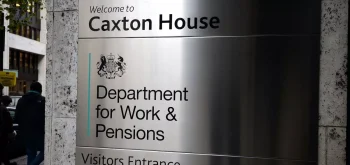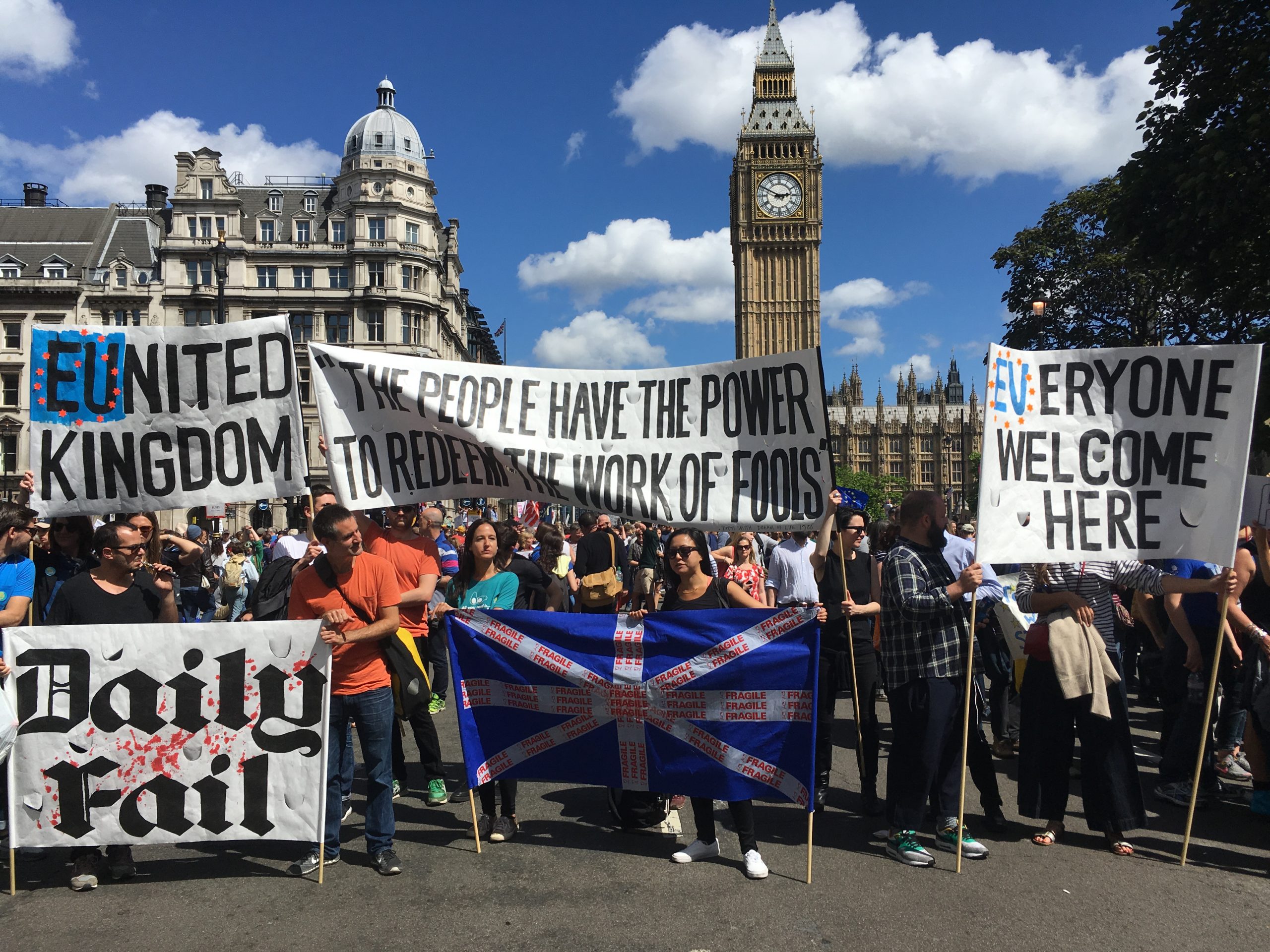The people are ‘tired of Brexit’ is now the constant refrain, whether it be in vox pops, polling, or the ‘mood on the street’. This exhaustion is the focus of the Conservative’s pre-emptive election campaign, putting their willingness to ‘get Brexit done’ up against Labour’s intention to have at least one more referendum. If the Conservatives do succeed in remaining in Number 10, it will be this exhaustion that keeps them there, the peoples’ desperation to no longer be involved in politics, and to see Brexit fade from the headlines.
Success for the Tories would be a political tragedy, a victory achieved first through conning the people, and then wearing them down to existential despair – and it would also provide a warning to politicians, a reminder of why the people should be kept arms-length from the political coalface.
The reason that the people are fed up with Brexit isn’t because Brexit has gone on for far too long, but because Brexit was introduced to the people far too early. The electorate are used to having a role that comes at the end of the process. They come in to split a deadlock, choosing (roughly) between two rival camps. They make their choice, a customer selecting bread in a bakery, and their role is complete – they are free to ignore politics, if they wish, for another few years. They aren’t in the back from the beginning, telling the baker how much flour to add to the mix.
The referendum reversed the normal order of things, even if events appeared superficially similar. For general elections, parties spend months preparing and refining their manifestos, ensuring they are ideologically and pragmatically appealing, as well as appearing economically sound. There was no such preparation for the referendum. Remain relied on fear, apocalyptically pointing to every possible catastrophe that could befall the nation if Leave won, whilst Leave promenaded a pantomime talking horse as the real thing, desperately hoping that the costume would make it to the end of the campaign. As it turned out, it did- and for some voters, the costume is still on.
Their success, however, meant that those in charge of the Leave campaign had to posthumously create the equivalent of a manifesto on the fly, and then convince the people that they voted for that, rather than the magical talking horse. This is why Johnson and Gove wore masks of such horror at their ‘victory’ speech – those are the faces of people tasked with making fantasy a reality. To succeed in this deception, they have had to keep the people perpetually engaged, convincing them that the rapidly transmogrifying Brexit is the Brexit they voted for.
To their credit, the Brexiters have been wildly successful in this, shifting the base of peoples’ support for Brexit from being the prospect of global economic supremacy and enhanced democratic legitimacy to pure emotion, going to their sense of identity. That Sajid Javid felt confident enough to refuse to release economic data on the basis that Brexit is about more than ‘spreadsheets or impact statements’ is an astonishing example of this shift, given that Brexit was originally premised entirely upon feasting from the cornucopia that lay beyond the EU’s shores. Brexiters are now able to say that 2+2=5, and have a pretty reasonable expectation that their supporters will accept it. Brexit has become the opiate of the people.
This success has put parliament in a bind. A majority of parliamentarians know that the deal which is on offer will lead to nothing like the utopia that has been promised, but face an electorate (especially for the Conservative MPs) who have been convinced that Brexit is worthwhile at any cost, and will vote for whoever seems most likely to bring it about. As a consequence, there is probably a majority in parliament to pass the latest deal, the parent giving in to buying a chocolate bar because their child is clinging to a pillar in the supermarket, obdurately refusing to let go until they have their candy.
It is this situation which demonstrates why voters are supposed to be several degrees removed from the actual process of politics – they don’t like it, and they don’t understand it. As Aaron Burr sings in Hamilton, ‘no one knows how the sausage gets made’- or at least they shouldn’t. The complications and compromises that are endemic in politics have been laid bare, but being exposed to the sausage-making process has just meant that public trust is even lower than it was before. This is despite most politicians (even those labelled remainers) having made a decent fist of trying to get a deal, so that the UK can leave the EU.
Instead of sympathising with the complexity of political decision-making facing politicians, the people are now just even angrier. They have seen the ingredients, and they don’t like them. The situation has become so severe that polling suggests that a majority of people, regardless of their political stripe, would be willing to see violence inflicted on MPs if it brought about their preferred Brexit outcome. Should this deal eventually be done, the dawning realisation among the electorate that they have been sold a pup, the UK becoming progressively economically and politically isolated, is unlikely to restore much faith. Joy at having done a deal can swiftly become anger for having done a deal – and the people will be unlikely to acknowledge their own culpability.
For those who do understand politics, it is entirely clear why Brexit has taken this long- because it is a decision of immense political complexity, taking place on both the domestic and international political spheres, and most significantly because at its root it is based on the contradiction that it must make the people richer, whilst doing everything which economists expect will make the people poorer. There is a reason that the EU-Canada trade deal took a decade, and why the Canadians weren’t moaning throughout that time about why a deal hadn’t been done yet- because most of them didn’t know about it. The Canadian electorate voted for parties willing to pursue the deal, and then the politicians and civil servants were left to get on with it until it was done.
At the root of the Brexit debacle is the conceit that politics is just about what the people want. As Jacob Rees-Mogg put it when taking questions this week, you tell the economist what answer you want, and they give it to you. Unfortunately, that is not how politics, or economics, actually works. Simon Wren-Lewis, a professor of economics at the University of Oxford, has set out precisely why Brexit denies economic reality, while it is worth noting that for all Rees-Mogg’s sang-froid, in their decades of campaigning Brexiters have only been able to find a single economist willing to agree with their unique take on trade economics.
If some frontline politicians had had any gumption, they could have taken steps years ago to minimise the scale of the tragedy we now face. Labour could have immediately and explicitly come out against the referendum result, explaining to their electorate that they were lied to, and campaigning either to revoke or for a confirmatory referendum from the outset. May, who is more sensible than she behaved as prime minister, could have sought a moderate Brexit that would have unified the centre and centre-left of the Conservative party, whilst pulling over moderate Labour MPs, and could have allowed the UK to invigorate EFTA, its economic bulk giving it extra clout against the EU. It would also have been consistent with nearly all of the promises made by Brexiters throughout the referendum campaign.
The failure of these frontline moderates to step up to the plate has allowed the people to continue to believe they had made a legitimate, deliverable, democratic choice, the equivalent of choosing between Labour and Conservative at a general election. Having made this choice, they are aghast at seeing us still sitting round the EU’s table as the twenty-eighth member state- indeed, some voters thought we would leave immediately. The failure of the moderate political class to treat the people as adults, explaining the political realities, rather than pandering to their whims, is the key reason that we are where we now are. A united, moderate caucus could have either succeeded in defenestrating Brexit, or in restraining it, if they could only have united around a single solution. Instead, they have fought each other as much as the Brexiters, who have remained united in the pursuit of the impossible.
Thus we are in a bind. If we have a general election, it is probable that it will have little effect. The nation is so split that the prospects of leave or remain (we have long abandoned strict party politics) winning a clear victory are virtually nil. Instead, our MPs will be back facing the status quo, forced to choose between Johnson’s deal, a customs union amendment, or revoke. It is the moderates who hold the balance of power. They can concede to populism or fulfil their Burkean obligations. Mouthpieces or representatives, it is now their choice alone







Back from the looking glass